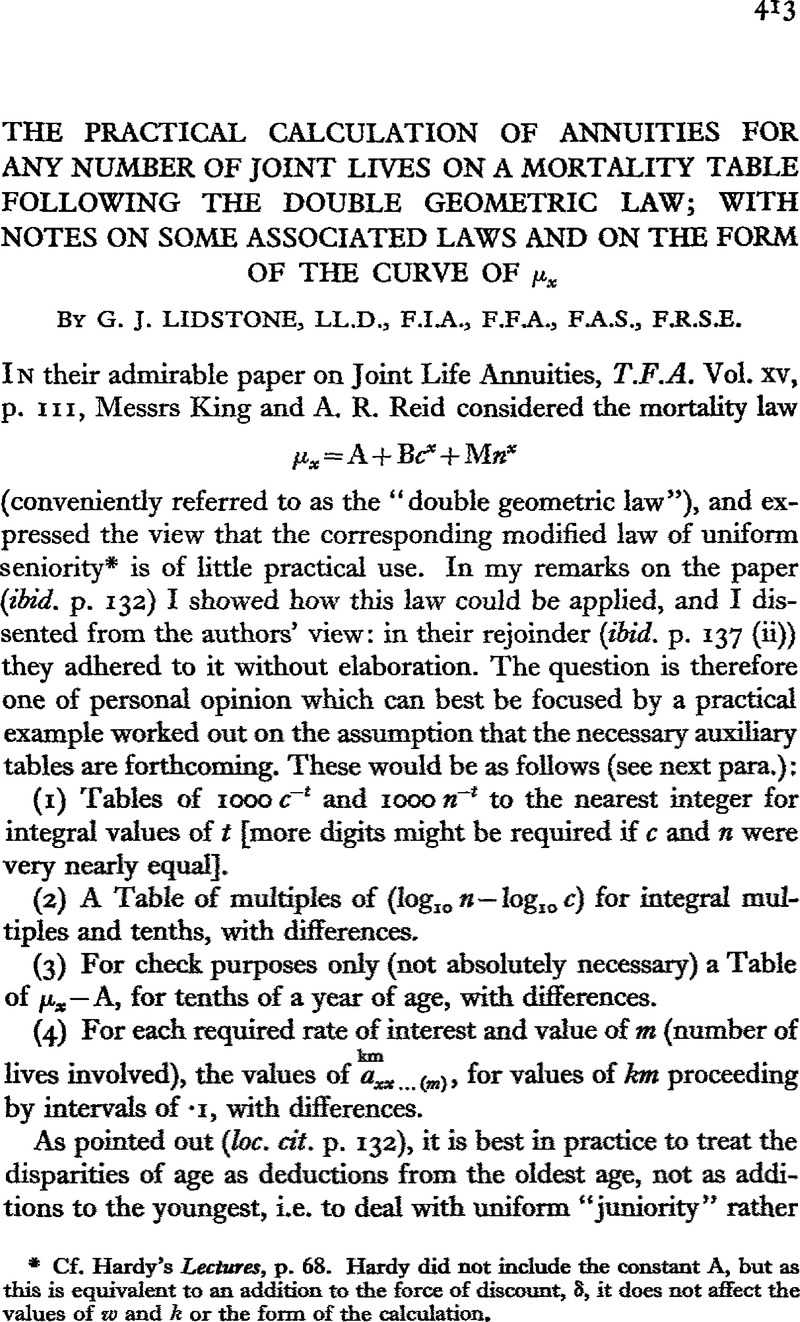Published online by Cambridge University Press: 18 August 2016

page 413 note * Cf. Hardy's Lectures, p. 68. Hardy did not include the constant A, but as this is equivalent to an addition to the force of discount, 8, it does not affect the values of w and k or the form of the calculation.
page 414 note *
The sums all embrace m terms, of which in the case of ![]() and
and ![]() the first is I = c° = n°.
the first is I = c° = n°.
page 416 note * Except at very advanced ages—see post, p. 417.
page 419 note * King and Reid's equation, loc. cit. p. III, will yield an indefinite number of such solutions (in addition to the real solutions considered by them) if βx > αγ, which is the case in their example.
page 420 note *
Here ![]() cos aø begins with the term c° cos 0 = 1.
cos aø begins with the term c° cos 0 = 1.
pge 422 note * If d be the number of degrees in ϕ, we have ϕ=d/57·29578; also
Hence for practical calculation it will be convenient to write
The common log of ·00757987 is 3·8796617. In such calculations it is convenient to use trigonometric tables with arguments in radians or in decimal form; see list, T.F.A. Vol. x, 344.
Please note a has been issued for this article.